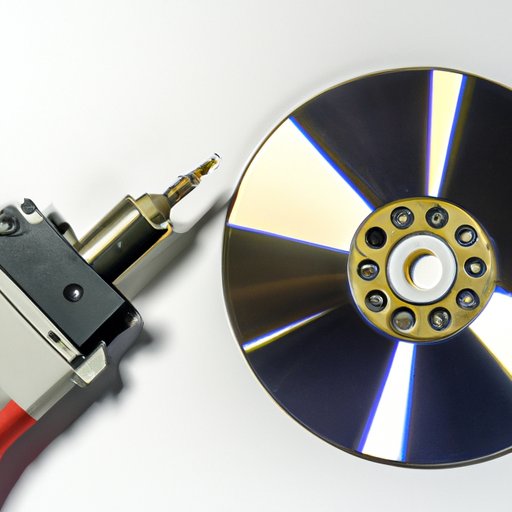
I. Introduction
As a Photoshop user, you may have encountered an alert that your scratch disk is full. This can be a frustrating issue that slows down your workflow and makes it hard to work with large files. In this article, we’ll explore what the scratch disk is and why it’s important to clear it. We’ll also provide a step-by-step guide to clear it in Photoshop, discuss some troubleshooting tips and suggest alternative approaches to try if the primary one doesn’t work.
II. Step-by-Step Guide
The scratch disk is a virtual drive on your computer that’s used to store temporary files generated while working with Photoshop. As these files accumulate, they start taking up disk space and can make your scratch disk full. To clear your scratch disk in Photoshop, follow these steps:
- Open Photoshop and go to the Edit menu
- Select Preferences and then Scratch Disks
- Select the disk that you want Photoshop to use for scratch disk, and click OK
- Restart Photoshop for the changes to take effect
By changing the designated scratch disk in Photoshop, you can free up the space taken by temporary files.
III. Explaining the Problem in Detail
When you use Photoshop, it generates a lot of temporary files like cache files, history states, and previews, which require space on your computer’s hard drive. When the designated scratch disk is full and there’s no more available space, Photoshop is unable to function properly. The performance slows down, and you may experience program crashes.
To clear the scratch disk, you should first back up all your data to another storage device or external hard drive to make sure none of your files gets lost when clearing the drive. Then, remove temporary files by choosing a different scratch disk or manually deleting the cached files generated when Photoshop was running on your computer.
IV. Troubleshooting Tips
One common problem is being unable to choose a new scratch disk. If Photoshop is unable to recognize another drive, it could be due to insufficient space on the new designated drive or because it has been locked by other programs. Another common problem is an insufficient amount of RAM in your computer; Photoshop could crash if there’s not enough memory available to handle files. To address both of these issues, close all open programs, and try again.
If you are still having trouble clearing the scratch disk, another alternative is to manually delete the contents of the scratch disk folder. This approach is less recommended since it might delete some critical files needed to run Photoshop. If you choose to go this route, make sure to create a backup copy of the folder before permanently deleting any files.
V. Highlighting Similar Software
If you continue to experience problems with the scratch disk, you might want to try alternative solutions to Photoshop. GIMP is free software that offers similar features to Photoshop. Alternatively, Adobe Lightroom is a powerful photo editing software that might better suit your storage needs, as it can automatically move files to an external hard drive.
VI. Providing Additional Resources
In addition to the scratch disk issue, there are other storage-related issues that Photoshop users might grapple with. If you need more storage space, consider moving your files to the cloud-based Adobe Creative Cloud or invest in an external hard drive. You might also find it helpful to optimize your storage settings on your computer.
If you encounter other issues while using Photoshop, there are many resources available online to help you troubleshoot. Adobe’s support page offers a wealth of information on common Photoshop-related issues and their solutions. Similarly, online forums like Reddit or Adobe’s community offer assistance from fellow Photoshop users.
VII. Conclusion
Clearing your scratch disk is an essential task in maintaining your Photoshop workflow’s efficiency. By using the step-by-step guide described in this article, you can clean up some space and improve your computer’s performance. Additionally, if you experience problems clearing the scratch disk, there are alternative software options, troubleshooting tips, and guidance on managing storage space and common Photoshop-related issues available online.




